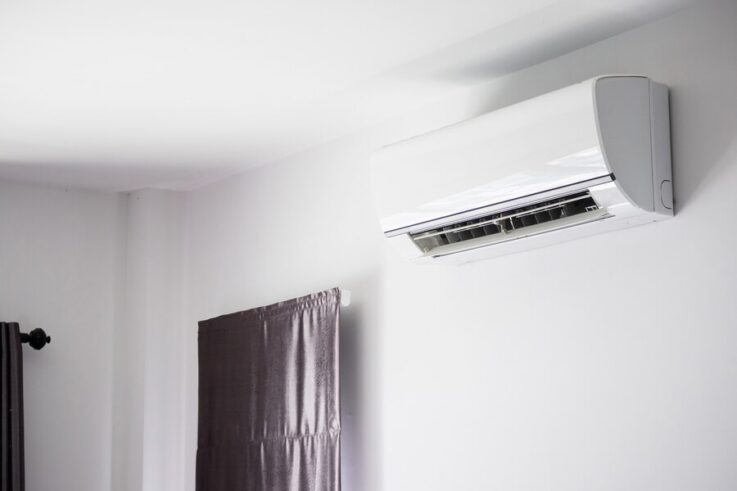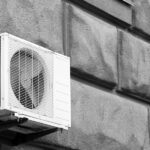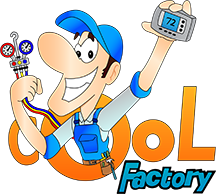
Signs It’s Time to Replace Your Air Conditioner
Signs It’s Time to Replace Your Air Conditioner
Air conditioners are essential for maintaining comfort in our homes, especially during scorching summers. However, like all appliances, they have a lifespan. Over time, wear and tear can diminish their efficiency, leading to increased energy bills and decreased performance. Recognizing the signs indicating it’s time to replace your air conditioner is crucial for ensuring your home stays cool and comfortable. Let’s delve into some key indicators that suggest your trusty AC unit might be due for an upgrade.
Decreased Cooling Efficiency
As air conditioners age, their ability to cool efficiently diminishes. You might notice that your once reliable AC struggles to maintain a comfortable temperature, taking longer to cool your home or failing to reach the desired temperature altogether. This decline in performance can be due to wear and tear on internal components, such as the compressor or evaporator coils, leading to reduced cooling capacity.
Additionally, accumulated dirt and debris within the system can hinder airflow, further impairing efficiency. If you find yourself constantly adjusting the thermostat without relief, it could be a sign that your air conditioner is no longer operating at peak efficiency.
Rising Energy Bills
One of the most noticeable indicators that your air conditioner may need replacing is a sudden spike in your energy bills. As air conditioners age and become less efficient, they require more energy to cool your home adequately. This increased energy consumption reflects in your monthly utility bills, often catching homeowners by surprise.
While minor fluctuations in energy costs are expected, a significant and consistent rise is cause for concern. Investing in a newer, more energy-efficient air conditioner can help you save money in the long run by reducing your monthly utility expenses while also providing superior cooling performance.
Frequent Repairs Needed
If you find yourself frequently calling for repairs to your air conditioning system, it could be a clear sign that it’s time for a replacement. As air conditioners age, the wear and tear on their components increase, leading to more frequent breakdowns and malfunctions.
Constant repairs not only incur additional costs but also indicate that your unit is struggling to keep up with the demands of cooling your home. Instead of continuing to pour money into temporary fixes, investing in a new, more reliable air conditioner can provide peace of mind and save you from the hassle of ongoing repairs.
Age of the Air Conditioner
The age of your air conditioner is a crucial factor in determining whether it’s time for a replacement. Most air conditioning systems have an expected lifespan of around 10-15 years, depending on factors such as usage, maintenance, and environmental conditions. As the unit approaches or exceeds this age range, its efficiency and performance begin to decline steadily.
Even with regular maintenance, older air conditioners struggle to keep up with modern energy efficiency standards and may lack the advanced features of newer models. Therefore, if your air conditioner is reaching or surpassing its expected lifespan, it’s wise to consider replacing it with a newer, more efficient model.
Strange Sounds or Odors
If your air conditioner is emitting strange sounds or odors, it could be a sign of underlying issues that warrant attention. Unusual noises such as grinding, banging, or squealing may indicate problems with the internal components, such as worn-out belts, loose parts, or malfunctioning motors.
Similarly, foul odors emanating from the vents could suggest mold or mildew growth within the system or a problem with the wiring. Ignoring these signs can lead to further damage and potential safety hazards. Therefore, if you notice any unusual sounds or odors coming from your air conditioner, it’s essential to have it inspected by a professional promptly.
Uneven Cooling Throughout the House
Uneven cooling throughout your home can be a frustrating issue, causing discomfort and temperature discrepancies between different rooms or areas. This problem often indicates that your air conditioner is struggling to distribute cool air effectively, resulting in hot spots or cold spots throughout the house.
Several factors can contribute to uneven cooling, including blocked vents, leaky ducts, improper sizing of the unit, or a malfunctioning thermostat. Addressing these issues may require adjustments to the system or, in some cases, replacement with a more appropriately sized and efficient air conditioner to ensure consistent comfort throughout your home.
Outdated Technology
As technology advances, so do the capabilities of air conditioning systems. If your air conditioner is equipped with outdated technology, it may struggle to provide the level of comfort and efficiency that modern units offer. Older models may lack features such as programmable thermostats, energy-saving modes, or variable-speed compressors, which can significantly impact performance and energy efficiency.
Additionally, outdated components may be more prone to malfunctions and require more frequent repairs. Upgrading to a newer air conditioner with advanced technology can not only enhance comfort but also result in long-term energy savings and reduced maintenance costs.
Excessive Moisture or Humidity
Experiencing excessive moisture or humidity levels in your home, even when the air conditioner is running, can indicate a problem with the system. Air conditioners play a crucial role in dehumidifying the air as they cool it, but if the unit is unable to effectively remove moisture, it can lead to indoor humidity issues. This may result from factors such as clogged condensate drains, improper sizing of the unit, or malfunctioning components.
High humidity levels not only compromise comfort but also create an ideal environment for mold and mildew growth, which can pose health risks. Addressing excessive moisture or humidity may require repairing or replacing your air conditioner to ensure proper dehumidification and maintain a healthy indoor environment.
Lack of Proper Airflow
Insufficient airflow from your air conditioner can indicate various underlying issues that need attention. It could result from clogged air filters, blocked vents or ducts, or problems with the blower fan. Reduced airflow not only compromises the effectiveness of your cooling system but also forces it to work harder, leading to increased energy consumption and potential damage to components.
Addressing airflow issues promptly is crucial to maintain optimal performance and prevent further damage. This may involve cleaning or replacing air filters, removing obstructions from vents or ducts, or repairing or replacing malfunctioning components to restore proper airflow throughout your home.
Increasingly Dusty or Dirty Air
If you notice a buildup of dust or dirt in your home despite regular cleaning, your air conditioner may be to blame. Over time, air conditioners can accumulate dust, dirt, and other airborne particles within the system, which are then circulated throughout your home when the unit is running. This can lead to poor indoor air quality, exacerbating allergies and respiratory issues for occupants.
Additionally, a dirty air conditioner is less efficient and may struggle to maintain optimal performance. Regular maintenance, including cleaning or replacing air filters and scheduling professional duct cleaning, can help alleviate this issue and improve indoor air quality.
Inconsistent Thermostat Performance
Inconsistent thermostat performance can be frustrating and uncomfortable, causing fluctuations in temperature throughout your home. This problem may manifest as difficulty reaching the set temperature, frequent cycling on and off, or discrepancies between the actual temperature and the thermostat reading. Inaccurate thermostat readings can result from various factors, including outdated or malfunctioning thermostats, poor placement, or wiring issues.
Addressing inconsistent thermostat performance may involve recalibrating or replacing the thermostat, relocating it to a more appropriate location, or troubleshooting wiring problems. Ensuring accurate thermostat operation is essential for maintaining consistent comfort and energy efficiency in your home.
Environmental Impact and Energy Efficiency
The environmental impact and energy efficiency of your air conditioner are significant considerations in today’s eco-conscious world. Older, less efficient air conditioning systems consume more energy, contributing to higher greenhouse gas emissions and environmental degradation. Upgrading to a newer, more energy-efficient model can reduce your carbon footprint while also saving you money on utility bills.
Look for air conditioners with high Energy Star ratings and features such as variable-speed compressors and programmable thermostats, which optimize energy usage and minimize environmental impact. By choosing an energy-efficient air conditioner, you can enjoy a cooler home while also doing your part to protect the planet.
Safety Concerns and Health Risks
Ensuring the safety and health of your household is paramount when it comes to your air conditioning system. Older units may pose safety risks due to worn-out components, electrical malfunctions, or outdated wiring. Faulty air conditioners can lead to electrical fires, carbon monoxide leaks, or other hazardous situations. Additionally, poorly maintained or malfunctioning air conditioners can compromise indoor air quality, exacerbating respiratory issues and allergies for occupants.
Regular maintenance and prompt repairs are essential for addressing safety concerns and minimizing health risks associated with your air conditioning system. Investing in a new, reliable unit with modern safety features can provide peace of mind and safeguard your family’s well-being.
Recognizing the signs indicating it’s time to replace your air conditioner is crucial for maintaining comfort, efficiency, and safety in your home. Don’t ignore the warning signals such as decreased cooling efficiency, rising energy bills, or strange sounds and odors emanating from your AC unit. If you’ve noticed any of these signs or others mentioned in this blog, it may be time to consider an upgrade.
At Cool Factory, Inc, we’re here to help you make informed decisions about your air conditioning needs. Contact us today at (703) 713-5113 or visit our location in Sterling, VA, to discuss your options and ensure your home stays cool and comfortable all year round.






